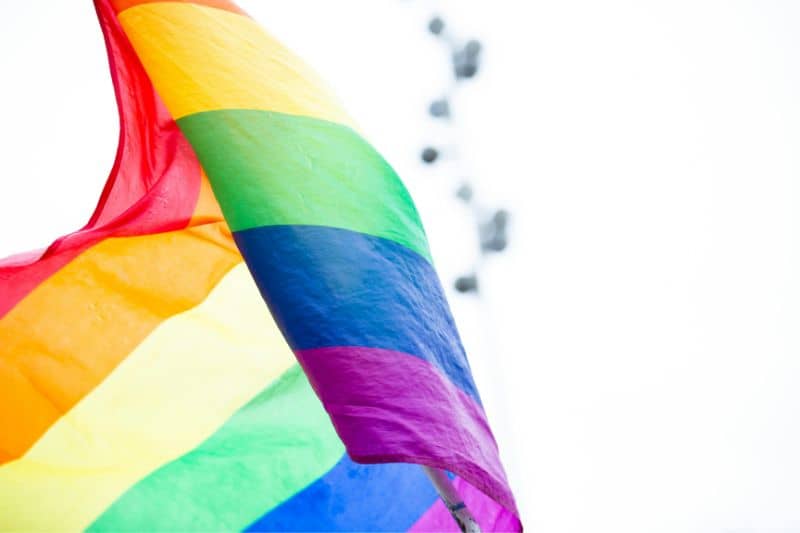Fighting for Equality: The Ongoing Struggle of LGBTQ Immigrants in America

For many LGBTQ individuals around the world, persecution based on their sexual orientation or gender identity is a harsh reality. They face discrimination, violence, and even imprisonment or execution in some countries. Seeking asylum in the United States can be a lifeline; unfortunately, the process can be difficult.
One of the biggest challenges for LGBTQ asylum seekers is establishing credibility. They often lack documentation or evidence to prove their identity or their persecution. Cultural biases and stereotypes can also lead to their claims being viewed with skepticism or disbelief. Organizations like Immigration Equality have been instrumental in providing legal services and support to navigate these complexities.
According to a report by the United Nations High Commissioner for Refugees (UNHCR), as of 2021, there were nearly 84 million forcibly displaced people worldwide, many of whom identify as LGBTQ. The United States has a responsibility to uphold its commitment to protecting those fleeing persecution, and ensuring that the asylum process is fair and inclusive for LGBTQ individuals is a crucial part of that commitment.
Proving Eligibility: The Hurdle for LGBTQ Asylum Seekers
One of the biggest obstacles that many LGBTQ asylum seekers face is proving their claims with credible evidence of their identity and the persecution they face. In many countries, simply being open about one’s sexual orientation can lead to criminal charges and, in some countries, even the death penalty. As a result, LGBTQ individuals are often forced to conceal this core aspect of their identity, making it extremely difficult to obtain official documentation that could bolster their asylum case.
The U.S. immigration system places the burden on asylum applicants to provide proof of their LGBTQ status as well as details about the specific persecution they suffered or fear they will suffer. However, survivors of violence and oppression rarely have access to the types of evidence that could corroborate their accounts, including:
- Witness testimonies from friends, family members, or others who can attest to their experiences
- Medical reports that document physical or psychological harm or support the individual’s identity
- Evidence of their identity, including coming out letters, evidence of participation in LGBTQ organizations or events, or other documentation that supports the individual’s identity
Further, there is the trauma that many LGBTQ asylum seekers have likely endured. This trauma can impact their ability to recount persecution in a linear, consistent manner – a factor that is heavily weighted in determining credibility.
The Challenges of Family-Based Immigration for LGBTQ Couples
Family-based immigration is a common pathway for individuals to obtain legal permanent residency in the United States. However, for LGBTQ couples, this process has been fraught with challenges and obstacles, many of which stem from the historical lack of legal recognition for same-sex marriages.
Before the Supreme Court’s landmark decision in Obergefell v. Hodges in 2015, which legalized same-sex marriage nationwide, LGBTQ couples faced significant barriers in accessing family-based immigration benefits. The Defense of Marriage Act (DOMA) explicitly denied federal recognition of same-sex marriages, effectively preventing LGBTQ couples from sponsoring their foreign-born spouses for green cards.
Even after the repeal of DOMA, binational LGBTQ couples have continued to face obstacles in navigating the complex immigration system. For example, couples who can’t marry in a country that does not recognize same-sex marriages may encounter challenges in immigrating their partner. Additionally, couples from countries with anti-LGBTQ criminal laws often lack documentation or evidence to support their relationship, making the immigration process even more challenging.
It’s important to note that while the legal landscape has improved, LGBTQ couples still face unique hurdles and discrimination in the family-based immigration process. Our legal team at the Law Office of Lina Baroudi is dedicated to advocating for the rights of LGBTQ families and ensuring that their path to legal permanent residency is as smooth and fair as possible.
The Plight of Undocumented LGBTQ Immigrants
The term “undocumented immigrant” refers to individuals who have entered or remained in the United States without legal authorization. For LGBTQ individuals in this situation, the challenges they face are compounded by their vulnerability and lack of legal protections.
- Undocumented LGBTQ noncitizens often live in constant fear of deportation, which can prevent them from accessing essential services like healthcare, education, and legal assistance.
- They may also face discrimination and abuse from employers, landlords, or law enforcement, with little recourse due to their immigration status.
Immigration detention centers pose a particular risk for LGBTQ detainees. Reports have documented cases of abuse, harassment, and inadequate access to healthcare, including hormone therapy and mental health services for transgender individuals. The conditions in these facilities can be traumatizing and potentially life-threatening for LGBTQ detainees.
Despite these challenges, organizations and advocacy groups are working tirelessly to protect the rights of undocumented LGBTQ noncitizens. From providing legal representation and advocating for policy changes to offering support services and safe spaces, these groups are a lifeline for individuals navigating the complex and often hostile immigration system.
The Impact of Immigration Policies on LGBTQ Individuals
Immigration policies have a profound impact on the lives of LGBTQ individuals seeking safety, reunification with their families, or access to essential services in the United States. Recent and proposed policies have raised significant concerns within the LGBTQ community and among advocacy groups.
- The Muslim travel ban, implemented in 2017, effectively barred individuals from several Muslim-majority countries from entering the United States, including LGBTQ refugees and asylees fleeing persecution based on their sexual orientation or gender identity.
- Changes to asylum policies, such as the “Remain in Mexico” and the “Circumventing Lawful Pathways” policies and heightened credibility standards, have made it even more challenging for LGBTQ individuals to seek protection in the United States.
- The rollback of LGBTQ protections and the erosion of civil rights under the previous administration have exacerbated the challenges faced by LGBTQ immigrants.
From denying visas to same-sex partners of diplomats to removing protections for transgender individuals in immigration detention facilities, these policy shifts have created an atmosphere of fear and uncertainty.
Organizations like Immigration Equality have been at the forefront of challenging discriminatory policies and advocating for inclusive immigration reform. Through litigation, advocacy, and community outreach, these groups strive to ensure that LGBTQ individuals have equal access to safety, family reunification, and legal protections within the United States immigration system.
The Intersection of HIV and LGBTQ Immigration
HIV-positive LGBTQ immigrants face a unique set of challenges that stem from the intersection of their sexual orientation or gender identity, their HIV status, and their immigration status. Historically, HIV-positive individuals were barred from entering the United States or denied permanent residency due to discriminatory policies that treated HIV as grounds for inadmissibility.
While the HIV travel and immigration ban was lifted in 2010, stigma and discrimination against HIV-positive individuals persist, particularly towards those within the LGBTQ immigrant community. Access to comprehensive healthcare, including HIV treatment and prevention services, can be limited for undocumented LGBTQ immigrants or those in immigration detention facilities.
Organizations like the Center for HIV Law and Policy have been instrumental in advocating for the rights of HIV-positive LGBTQ immigrants. From challenging discriminatory policies to providing legal services and support, these groups work to ensure that HIV-positive individuals can access the care and protections they need, regardless of their immigration status or sexual orientation.
Fighting for LGBTQ Immigrant Rights – Get Legal Help Today
The unique challenges faced by LGBTQ immigrants in the United States are multifaceted and deeply rooted in systemic discrimination, outdated policies, and a lack of understanding and empathy. From the asylum process to family-based immigration, undocumented status, and the intersections of HIV and LGBTQ identity, these individuals navigate a complex and often hostile system.
However, there is hope. Organizations and advocacy groups are working tirelessly to promote policy reforms, provide legal support, and amplify the voices of LGBTQ immigrants. Through their efforts, we can work towards an immigration system that is truly inclusive, fair, and respectful of the fundamental human rights of all individuals, regardless of their sexual orientation or gender identity.
If you or someone you know is facing immigration challenges related to being LGBTQ, contact the Law Office of Lina Baroudi. Our LGBTQ attorneys and legal professionals are committed to providing compassionate, culturally sensitive representation and advocating for the rights of LGBTQ immigrants. Together, we can create a more just and equitable society for all.



